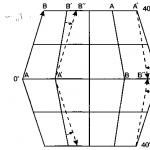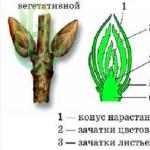Ch. Aitmatov managed to write a chaste story about true love. This task is impossible for some, but the Soviet classic succeeded. The work “The First Teacher” by Aitmatov (summary) fell into the field of our attention.
The artist and the pain of creativity
The story begins with a creative search for an artist who cannot find a plot for a new painting. In a melancholy state, he recalls his childhood, the Kazakh steppes, his native village and two poplars, on which he played as a child. The master dreams of visiting his native places and, perhaps, defeating an unexpected one. And then (very opportunely) he receives a letter from home: a new school is opening in his native village. The artist understands - this is it! Fate itself holds out its hand to him. This is how Aitmatov's "First Teacher" begins (a summary, of course, cannot contradict the full version).
Holiday in ail
A lot of people come to such a significant event as the opening of a school. But the main guest of the celebration is the artist and academician in years Altynai Sulaimanovna Sulaimanova. The holiday is fun. Everyone is joking. The main object of jokes is Duishen. Now he is a postman, and once the old man was a school teacher, although he read and wrote with great difficulty (this is what the audience laughed at). It was in those days when a secondary educational institution was just being designed, and the population of the village could not imagine why children should study at all, because many generations lived like this - without education, only by their own labor. Duishen was in fact a genuine revolutionary, and now he was laughed at by those to whom he provided not a brilliant, but still at least some kind of future.
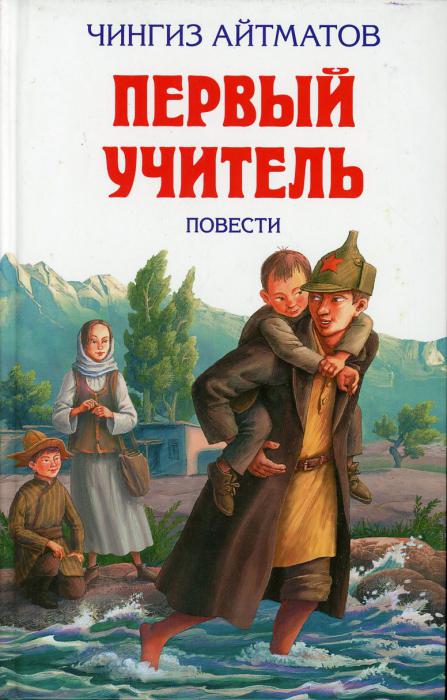
Only Altynai Sulaymanovna Sulaymanova did not laugh, apparently understanding the historical role of the current postman in the fate of a single village, but the reason was not only this. It turns out that he played a huge role in her personal destiny. But the reader will know about this a little later, but for now, a triumph unfolds before him. However, Altynai is sad at the holiday, looking out the window at the poplars, remembering something of his own. Then old Duishen brings telegrams with congratulations from those who have received education in the village. The postman himself does not take part in the holiday - he has many letters and cases.
Altynai becomes terribly ashamed for some reason, she hurries to Moscow, referring to the cases. The artist escorts her and asks if she is all right, if she is holding a grudge against someone. Altynai says that she should be offended only at herself.
Confession Altynai
Altynai - an illiterate orphan of fourteen years
The personal history of Altynai begins in 1924, when a strange man in black (his overcoat was made of cloth of this particular color) came to the Kazakh steppe ail Kurkureu and said that he would create a school in it and teach children in it. Local aksakals were skeptical about such an undertaking, because they did not understand at all the benefits of education for life in the steppe. Duishen, on the other hand, was adamant, so they gave up on him and allowed him to do whatever he wanted, but at his own expense.
Then a convinced Komsomol member decided that the school would be on a hillock in the same room where there used to be a stable of one bai.
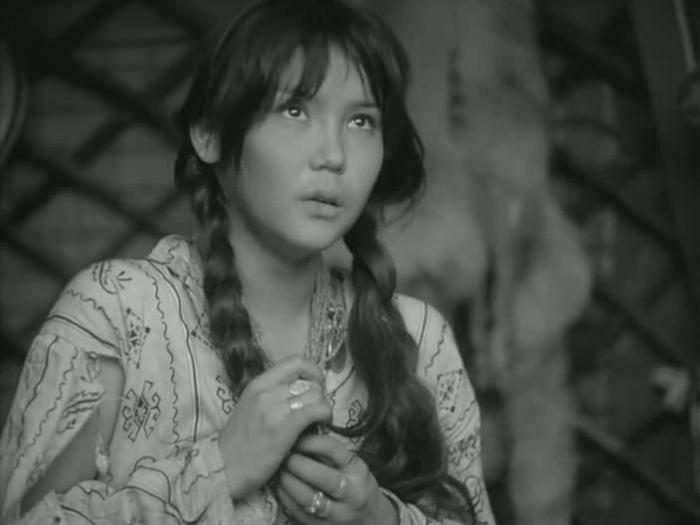
The future academician of the USSR was then simply called Altynai, and she did not even dream of anything like that. She lived with her aunt and uncle, her parents, unfortunately, died and doomed the girl to the role of Cinderella in a strange family.
The aunt is grumpy, and the uncle is laconic. Sometimes Altynai received slaps in the face for misconduct. Offended her, of course, aunt. In other words, a classic of the genre. Aitmatov Chingiz Torekulovich wrote a wonderful story of the Soviet Cinderella in a realistic manner, devoid of any fabulousness.
Knowledge as the promise of a better life
It does not matter that the “temple of knowledge” was located in a former stable, which still needed to be worked on properly. Children in the village worked. Their duties, among other things, included the collection of dung (it was used as fuel in winter). The path to the "workplace" of the children ran just through the hillock and the stable (future school). When the girls (it was they who collected the dung) were walking home from the “shift”, they passed by the school and saw how the young man was ennobling the building of the former horse station so that it would become suitable for teaching children.
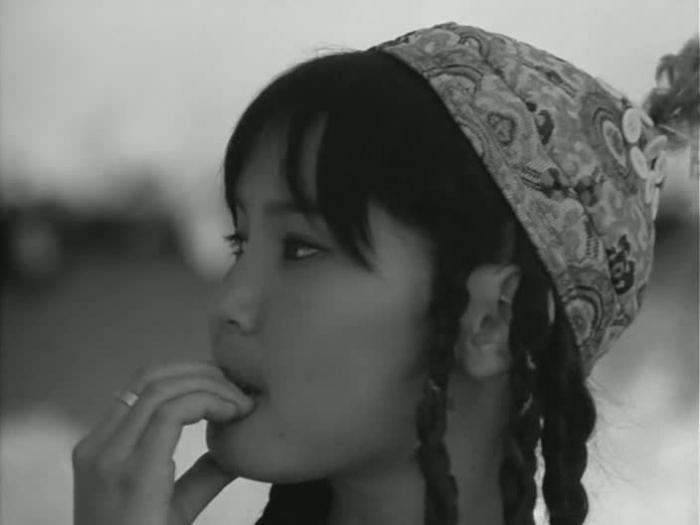
Eyes lit up, and only Altynai's soul ignited at the sight of the school, while the rest of her "colleagues" reacted indifferently to Duishen's undertaking. Apparently, the girl already then understood that the school is an opportunity to escape from the captivity of her aunt's beatings and the general dullness of life in the village, so she suggested that her friends pour all the dung collected during the day at school so that they would not freeze in winter. However, the girls only twirled their fingers at their temples and went home, while Altynai scorned the possible dangers and left the entire day’s “harvest” in the “temple”. Of course, it was scary, because for such an act she could be severely punished at home, but she didn’t care - this was the first act of a free spirit in her life.
After Altynai committed a courageous act, she returned to the place where the dung was collected and worked until dark so that her aunt's reprisal would not be so cruel. Of course, she collected very little and paid the price for her courage. Aitmatov Chingiz Torekulovich in the "First Teacher" created in some way a monument to the courage of children.
to knowledge
Training required a lot of strength from the children and the teacher, and we are not talking about moral strength, but about physical strength. Duishen literally informed on himself to the school of those children who, in bad weather, could not walk on their own. That was such a mentor for the guys! The work “The First Teacher” by Aitmatov (a brief summary convinces us of this) can be considered as a symbol of the stamina and inflexibility of the human will.
Unexpected marriage of Altynai and the beating of a teacher
So some time passed. But Aunt Altynai still got stuck with the fact that the girl goes to school, and does not help her with the housework. And she came up with an insidious plan: to marry the girl to rich mountaineers. There are benefits everywhere: firstly, money, and secondly, in the mountains, when Altynai is in the rank of “second wife”, she will not really need a letter. Thus, the evil aunt will still break the spirit of a proud child!
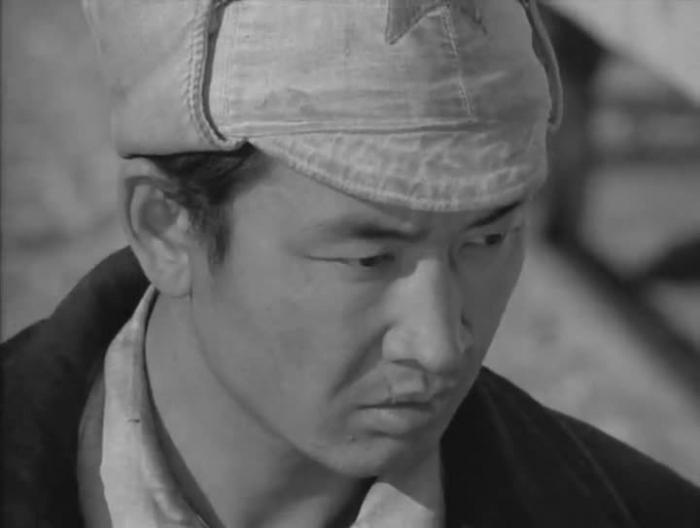
Therefore, one day, when Altynai returned from school, she found her aunt in an unusually good mood, and her uncle in a drunken state. He "under the fly" played board games with fat men of disgusting appearance. In other words, a holiday reigned in the house.
Altynai realized that she was being married off. She ran and told everything to her teacher, and he told her not to worry about anything, continue to go to school and live with her distant relatives who lived in the same village. The image of Duishen is saturated with great human courage. We hope that this is how Ch. Aitmatov conceived it. "The First Teacher" is an inspiring story.
But my aunt was also not a blunder. Somehow she took strong guys with her and broke the calm and benevolent atmosphere of an ordinary school lesson. She planned to take Altynai by force. The teacher, of course, tried to stop them, but could not. His ribs and arms were broken, he was severely beaten, and the girl was thrown over the saddle and taken to the mountains.
Salvation Altynai. End of the story
Altynai woke up in the yurt of the main kidnapper and realized that she had been “dishonored”. The girl tried to get out herself, but she did not succeed alone. Then Soviet policemen came along with a bandaged teacher, arrested the villainous rapist and freed Altynai. Then there was a reverent and touching meeting at the station, when Duishen accompanied Altynai to the big city - Tashkent, where she went to study at a boarding school.
For a while they corresponded. Altynai begged her teacher to come to her, telling him that she loved him and was waiting for him. But instead, he simply cut off all contact with her so as not to interfere with her studies.
Despite all the successes of the girl from the village, for Altynai, parting with Duishen was a deep psychological trauma, she never recovered from it. Already in adulthood, Altynai seemed to see her lover in various unexpected places. But these were only mirages of an unhappy consciousness.
From everything we can conclude that this is a work about love (we are talking, of course, about the composition “The First Teacher”). The main characters are Duishen and Altynai.
The venerable academician ends his letter to the artist with the assurance that he will definitely ensure that the new school is named after his first teacher.
In turn, the artist not only touched a wonderful and touching story, but also found a storehouse of subjects for new canvases. The story ends with a picture: the master stands at the wide open window and thinks about what he has read, inspired by the hope of new creative achievements.
This was a brief retelling of the "First Teacher" - an essay written by Chingiz Aitmatov. His works are consistently amazing both in execution and in content. We hope that this article will encourage the reader to get acquainted with other works of the author.


